 Ministry of Industry and Trade (MOIT) Energy Saving Office consultant Nguyen Kinh Luan said that the application of energy management systems would help enterprises reduce energy costs, protect the environment and secure national energy security when addressing a workshop on the ISO 50001 Energy Management System. He spoke with Vietnam Economic News's Lan Phuong on the issue.
Ministry of Industry and Trade (MOIT) Energy Saving Office consultant Nguyen Kinh Luan said that the application of energy management systems would help enterprises reduce energy costs, protect the environment and secure national energy security when addressing a workshop on the ISO 50001 Energy Management System. He spoke with Vietnam Economic News's Lan Phuong on the issue.
The Law on Energy Efficiency and Conservation states that enterprises using certain forms of energy must apply an energy management model, so what does this actually mean?
Before the announcement of the ISO 50001 Energy Management System by the International Standards Organization in late 2011, many countries had already developed their own energy management system standards such as the European EN16001:2009, the US ANSI/MSE 2000 and China's GB/T 23331:2009. These standards have many regulations in common in terms of how to assess the energy management level of an enterprise such as the pledges made by the business' leaders about their energy policies, organizational structure for energy management, mechanisms for training human resources, energy use measurement control systems, marketing strategies and capital sourcing for energy saving projects.
So what benefits does an energy management system provide to businesses?
An energy management system helps enterprises reduce manufacturing costs and their impact on the environment. It will also improve working conditions and raise the image, prestige and competitiveness of enterprises.
So how do enterprises supposed to go about creating an energy management system?
I think enterprises should step by step develop their energy management systems. Initially, there needs to be changes in awareness at a leadership level, which is a prerequisite for success. Then enterprises need to carry out a series of tasks such as drafting their energy policies, appointing staff, mapping out action plans and gradually implementing and completing relevant regulations and instructions relating to energy management standards.
As for the ISO 50001 Energy Management System, setting up plans, documents and procedures may takes a lot of time and requires help from experienced consultancy organizations. However, if enterprises are already implementing standards such as ISO 9001 or ISO 14000, they could find similar content which can be integrated into a same system, helping them save time on drafting regulations and procedures for an energy management system.
At present, what agencies and organizations are there that can help enterprises develop an energy management system?
Currently, the MOIT is directing Energy Saving Centers in cities and provinces to upgrade their skills so they are capable of developing energy management systems. The Hanoi and Ho Chi Minh City Energy Saving Centers can help enterprises build their energy management systems. The enterprises, however, should be able to assess themselves by realizing their advantages and disadvantages so that they conceivably should be able to draft their own plans to overcome difficulties.
There are nearly 1,200 enterprises that are using key energies. In your opinion, when will they have a complete energy management system to make energy savings more effective?
Apart from the pledges made by business leaders about their energy policies, the key point of an energy management system is the appointment of a manager conforming to two conditions of the Law on Energy Efficiency and Conservation. Firstly, the manager should be a university or college graduate specialized in energy or relevant technical departments. Secondly, he or she should have an energy management certificate issued by the MOIT.
To get this certificate, however, enterprises have to send their staff on a ministry training courses. With hundreds of people trained every year, the training courses are fully booked. Therefore, the target to complete the implementation of energy management systems at enterprises using key forms of energies by the year 2014 seems difficult. At present, I think enterprises should take the initiative in developing their own plans and take firm steps to complete their energy management systems.
By Ven.vn
 Ministry of Industry and Trade (MOIT) Energy Saving Office consultant Nguyen Kinh Luan said that the application of energy management systems would help enterprises reduce energy costs, protect the environment and secure national energy security when addressing a workshop on the ISO 50001 Energy Management System. He spoke with Vietnam Economic News's Lan Phuong on the issue.
Ministry of Industry and Trade (MOIT) Energy Saving Office consultant Nguyen Kinh Luan said that the application of energy management systems would help enterprises reduce energy costs, protect the environment and secure national energy security when addressing a workshop on the ISO 50001 Energy Management System. He spoke with Vietnam Economic News's Lan Phuong on the issue.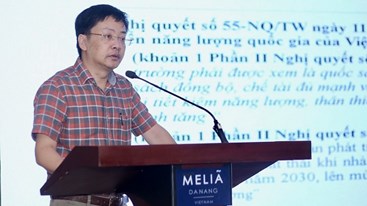
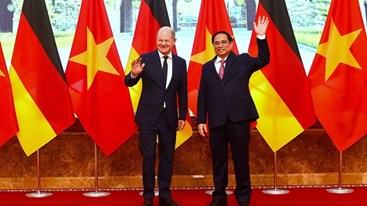
.png?w=367&h=206&mode=crop)
.jpg?w=367&h=206&mode=crop)
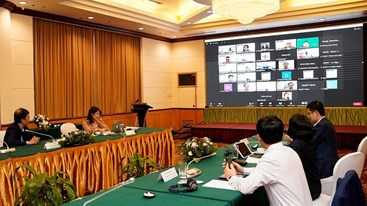
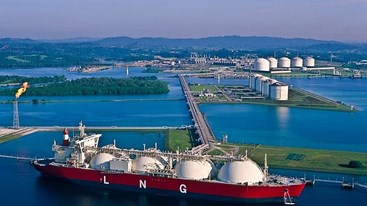
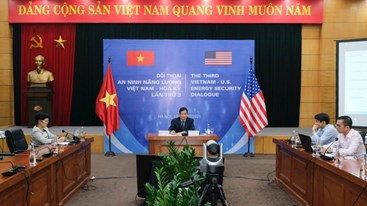

.jpg?w=367&h=206&mode=crop) Energy efficiency and conservation usage is an important aspect of the national energy development strategy
05/03/2024
Energy efficiency and conservation usage is an important aspect of the national energy development strategy
05/03/2024
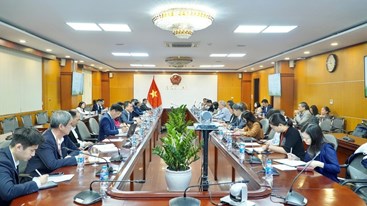 Challenges and Opportunities to promote energy efficiency market in Vietnam
Challenges and Opportunities to promote energy efficiency market in Vietnam
 The Ministry of Industry and Trade requests government agencies to coordinate in organizing Earth Hour 2024
The Ministry of Industry and Trade requests government agencies to coordinate in organizing Earth Hour 2024
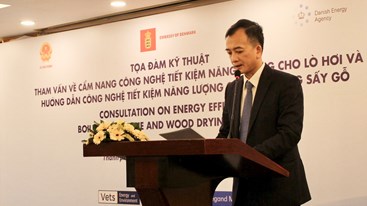 Consultation on Energy Efficiency Boiler Catalogue and Wood Drying Guideline
Consultation on Energy Efficiency Boiler Catalogue and Wood Drying Guideline
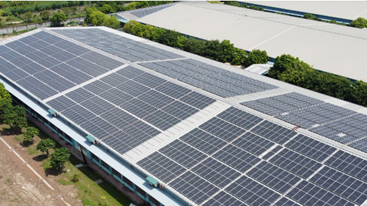 Son Ha Co., Ltd, applies energy efficiency and conservation measures
Son Ha Co., Ltd, applies energy efficiency and conservation measures
.png?w=367&h=206&mode=crop) Request for expression of interest - C2.1.13: Capacity Building on energy efficiency policies development
Request for expression of interest - C2.1.13: Capacity Building on energy efficiency policies development
 Phuc Kien Co., Ltd., is effectively implementing energy-saving measures
Phuc Kien Co., Ltd., is effectively implementing energy-saving measures
 Request for expression of interest - C2.1.12: Independent monitoring of safeguards implementation
Request for expression of interest - C2.1.12: Independent monitoring of safeguards implementation